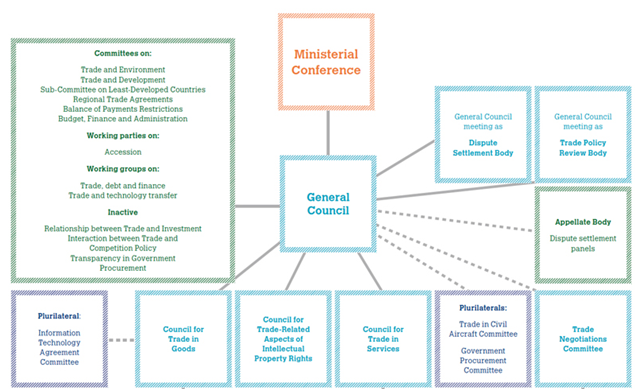7667766266
enquiry@shankarias.in
What is the issue?
The upcoming WTO ministerial meeting scheduled in Geneva provides an opportunity to rescue the global institution which is facing an existential crisis due to the U.S. policy.
What is the U.S. policy on WTO?
Appellate Body (AB) is composed of seven permanent members appointed by WTO members by consensus.
The initial appointment of an AB member is for a four-year term, with possible reappointment for a second term.
The AB members can continue to adjudicate an appeal even after expiry of their tenure, on cases to which they were appointed during their term.
What are the other challenges faced by WTO?
What is India’s approach towards WTO?
Source: The Indian Express
Quick Facts
World Trade Organisation (WTO)
